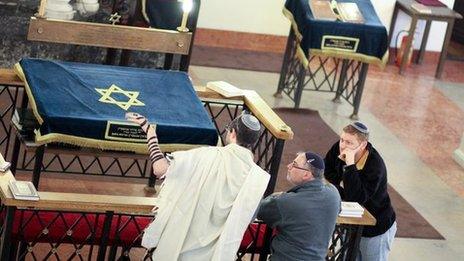Poland's Duda vows anti-Semitism fight at Kielce anniversary
- Published
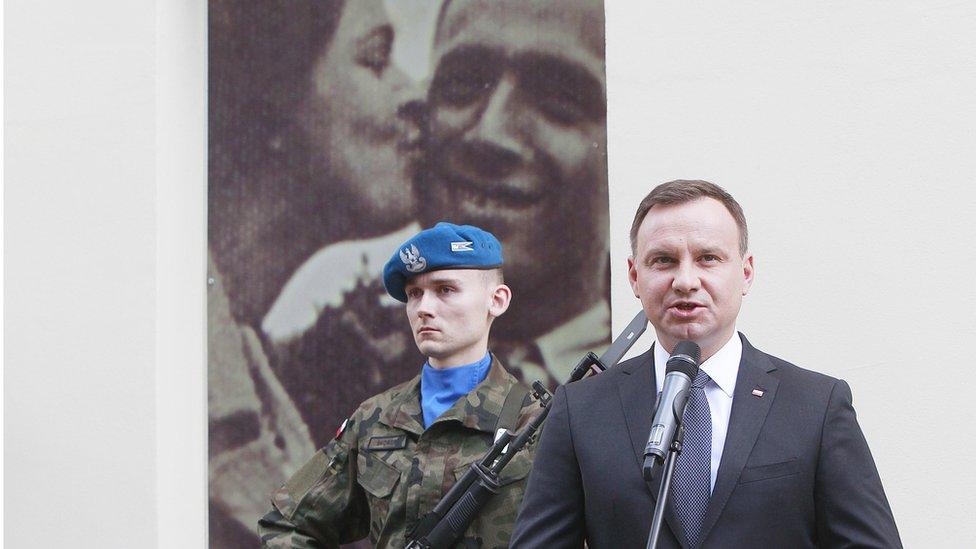
President Duda said there was no justification for anti-Semitic crime
Polish President Andrzej Duda has marked the 70th anniversary of a notorious post-war massacre of Jews by saying there is no place for anti-Semitism in today's Poland.
Forty-two people, most of them survivors of the Nazi Holocaust, were murdered on 4 July 1946 in Kielce, 150km (93 miles) south of Warsaw.
The massacre was carried out by communist police, soldiers and a mob.
It prompted thousands of Poland's Jewish Holocaust survivors to leave.
The pogrom began because of false claims by a Christian boy, Henryk Blaszczyk, who told his family he had been kidnapped by Jews.
A Jewish centre housing Holocaust survivors at 7 Planty Street was surrounded and its occupants attacked.
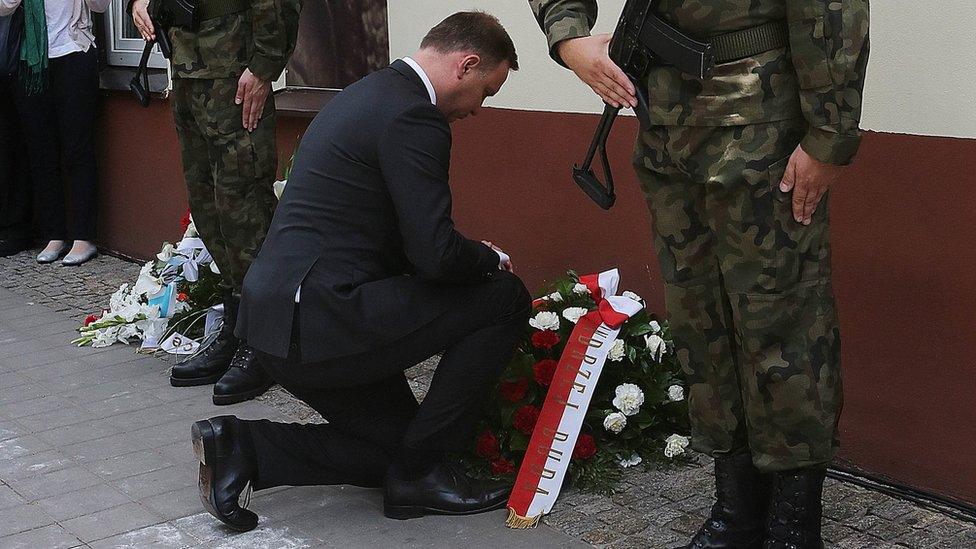
President Duda laid a wreath at the house in Planty Street where the pogrom took place
Before the war and the Nazi occupation, Poland had been home to Europe's biggest pre-war Jewish community.
Kielce itself had a 24,000-strong Jewish population, but only around 200 came back. Within weeks of the massacre more than a quarter of Poland's Jewish survivors had fled. Twelve of the perpetrators were put on trial and nine sentenced to death.
"It was the army and police who first opened fire on the Jewish residents of Kielce," Mr Duda said on Monday, singling out Poland's then communist authorities.
"In the free, sovereign, independent Poland there is no room for any prejudice, there is no room for racism, there is no room for xenophobia, there is no room for anti-Semitism."
The president had earlier laid flowers on the graves of victims in Kielce's Jewish cemetery, accompanied by Poland's Chief Rabbi Michael Schudrich.
- Published15 February 2016
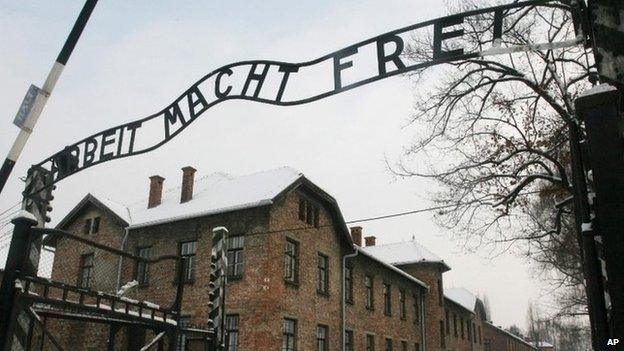
- Published18 May 2016
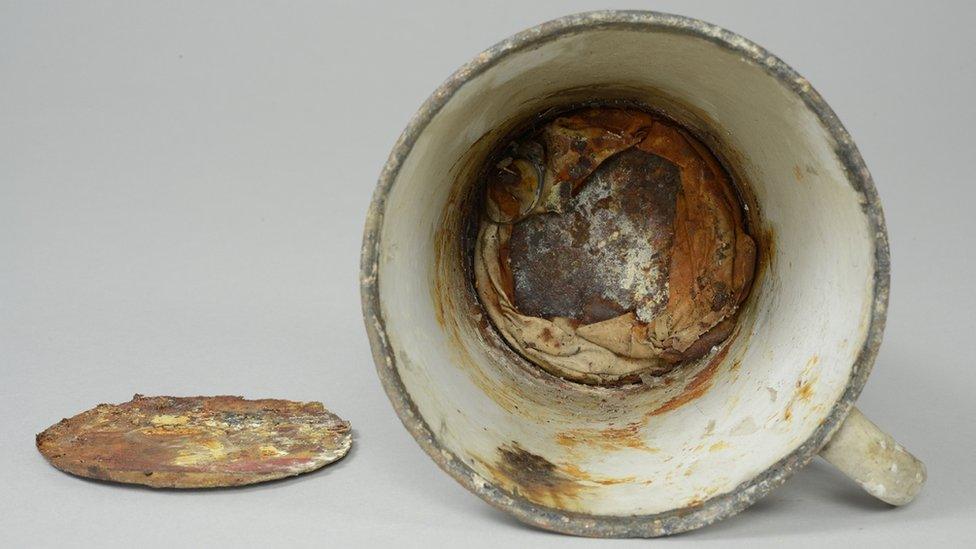
- Published20 April 2012
